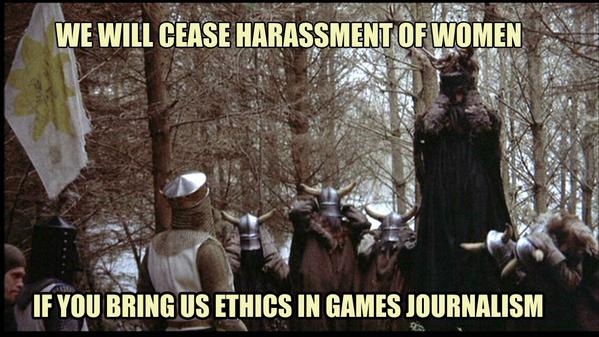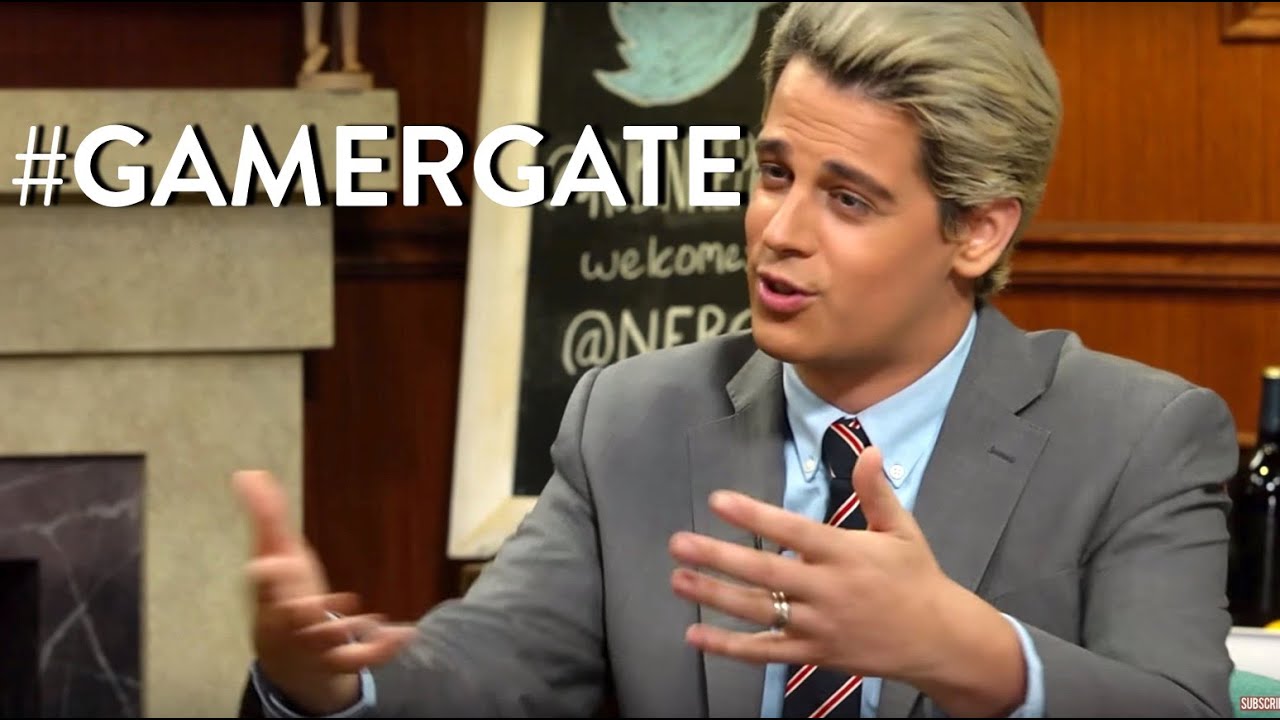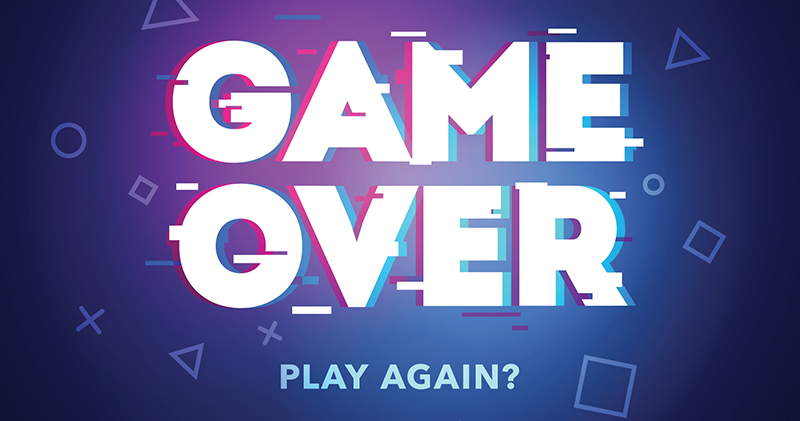GamerGate: A No-Bullshit Summary On Gaming’s Dumbest Movement
In many ways, GamerGate was the most important movement in gaming. But like Hitler winning Time’s “Man of the Year,” that doesn’t mean...
Published 4 years ago in Facepalm
In fact, this was probably the dumbest “movement” in the history of gaming. And all these years later, we’ve got a retrospective on where everything went wrong.
1
Bad Faith Beginning
Any debate over GamerGate will involve people on different sides debating various motives and events. But one thing that everyone can agree on is how things started. On August 8, 2014, Eron Gjoni wrote a long post accusing ex-girlfriend Zoe Quinn of adultery.
Relationship drama isn’t inherently a matter concerning gamers. But because Quinn is a games developer, Gjoni shared his “Zoe Post” to places like Penny Arcade, The Escapist, Something Awful, and 4chan.
It was 4chan that really got things cooking by making up conspiracies, including that Quinn slept with Kotaku reporter Nathan Grayson to get a positive review for her game Depression Quest. There’s just one problem: Grayson never reviewed her game.
In these early days, “GamerGate” didn’t even have a name. But as the movement picked up steam and made occasional good points about improving games journalism, critics rightly pointed to the fact that this all started with a jilted ex-boyfriend and the people willing to spin endless conspiracies on his behalf.2
Some Dubious Victories
In August of 2014, conservative actor and Firefly star Adam Baldwin noticed the momentum of this movement and gave it its name: “GamerGate.” In the coming months, the movement would claim some rather dubious victories.
For example, outlets such as Polygon updated their ethics policy requiring writers to disclose if they support a game dev on Patreon. Similarly, Kotaku updated their policy so that writers could not review a game at all if they finally supported the creators on Patreon.
On one hand, these were necessary changes. Honestly, we can’t expect unbiased reviews from journalists who regularly open their wallets to game devs. But at the same time, the controversy over these real issues started with false claims about Quinn using unethical means to secure positive reviews for her game.
These early victories helped spurn the (now roundly mocked) GamerGate catchphrase that the movement “is about ethics in games journalism.” But anyone who followed that movement from the beginning knows that its early days were filled with fake conspiracies, doxxing, death threats, and so on...not exactly ethical stuff.
This would become a pattern with GamerGate, where even positive outcomes are mired in the insane politics and emotions of its loudest members.3
Bizarre Rightwing Allies
Any movement is going to have figureheads. And in the case of GamerGate, they found some very unexpected allies for a movement all about video games.
For example, Mike Cernovich got involved early on in his zeal to dunk on Anita Sarkeesian’s videos. If the name doesn’t ring a bell, Cernovich is an MRA grifter of a lawyer who repeatedly defended raping women and wants to sell you brain pills so you can enjoy the “Gorilla Mindset.”
Another unlikely ally was Milo Yiannopoulos. Formerly Steve Bannon’s golden boy, Yiannopoulos fell from grace after interviews and video clips surfaced of him joking about molestation and defending having sex with children as young as 13 years old.
People like Cernovich and Yiannopoulos are despicable on their own, and they didn’t exactly help the perception of GamerGate as being filled with right-wing misogynists. But it’s equally important to note that these movement celebs aren’t gamers--or, at the very least, never before prominently associated with gaming.
Instead, they used GamerGate as a culture war wedge issue to gain favor among conservatives. The fact that neither Cernovich nor Yiannopoulos were very culturally significant during Donald Trump’s reign as president is just the cherry on top.4
The “Gamers Are Over” Nontroversy
In retrospect, the stupidest part of GamerGate was probably the contrived “controversy” over a handful of opinion pieces.
On August 28, 2014, Gamasutra published an article from Leigh Alexander titled “Gamers are over.” The article put forth two basic opinions: the first was that as more diverse people started gaming, the old ideas of “gaming culture” were functionally useless. The second was those good gaming journalists had to do more than crank out reviews, making GamerGate’s laser focus on game reviews to be very shortsighted.
Pretty simple stuff, right? And like most editorials, you can take or leave the opinions. Or, if you were a GamerGate member, throw a completely insane tantrum across the internet.
Many games journalists responded to Alexander’s article with their own views on the apparent “death of the gamer” as being the death of an old stereotype: that gamers are predominately white, male, and heterosexual. But GamerGate as a movement decided this was some mass journalistic conspiracy designed to oppress gamers.
That’s right: the people that love to tell you “facts don’t care about their feelings” went to war with various journalists and publications because their feelings were deeply, deeply hurt.5
From Targets to Celebrities
One of the greater ironies of GamerGate as a movement is this: when the smoke of doxxing and death threats cleared, their biggest targets ended up thriving.
For example, Eron Gjoni’s rage against Zoe Quinn is what got everything started. Since then, Quinn has enjoyed working on numerous games, collaborating with unexpected creators like Chuck Tingle, and even writing comics for DC and IDW. All this while writing a successful book about her experience called Crash Override: How Gamergate (Nearly) Destroyed My Life, and How We Can Win the Fight Against Online Hate.
Meanwhile, Anita Sarkeesian completed her Youtube series Feminist Frequency to great acclaim and numerous celebrity endorsements. She has since spoken about her experiences (and GamerGate harassment) at various universities and received numerous awards and accolades from Newsweek, Gamasutra, Microsoft, and the Game Developers Choice Awards. She also partnered with Quinn’s Crash Override Network and eventually created the Game and Online Harassment Hotline.
Meanwhile, Eron Gjoni has faded into digital nothingness. And the rightwing celebs that helped prop up GamerGate have either fizzled out or moved on to other grifts and other marks.6
GamerGate Lives On
You can say many things about GamerGate. In fact, this retrospective has really only scratched the surface of what happened. But one thing you cannot say about the movement is that it is dead.
Digitally, GamerGate survives in places like Twitter, 8chan, and the subreddit KotakuInAction. And the subreddit, in particular, is quite active, though it is arguably concerned as much with general culture war issues as “ethics in games journalism” these days.
More notably, and as countless others have already pointed out, the initial success of GamerGate arguably paved the way for the success of Donald Trump. Milo Yiannopoulos’s mentor, Steve Bannon, had previous experience running a WoW gold farming operation (no, really), and he became impressed by what he called “rootless white males” who practically lived online.
When Bannon joined with Trump, he harnessed his experience in whipping these “rootless white males” into a frenzy on his Breitbart platform into a kind of conservative recruiting tool. And he had very fallow ground because his apprentice Milo had been trying to channel gamers into an angry political mob.
Long story short? The biggest voices in GamerGate played everyone else to further their own careers. But “everyone else” is still around just waiting to howl about “politics in video games” (right before happily playing a game where you’re a terrorist taking on a corrupt government) and “forced diversity” (the complaint if any of the character creator options are something other than “lily-white male”).
These guys, like Trump’s biggest supporters, never really went away after a major loss. And it’s important to keep a wary eye on GamerGaters as we head further into the next generation of gaming.









